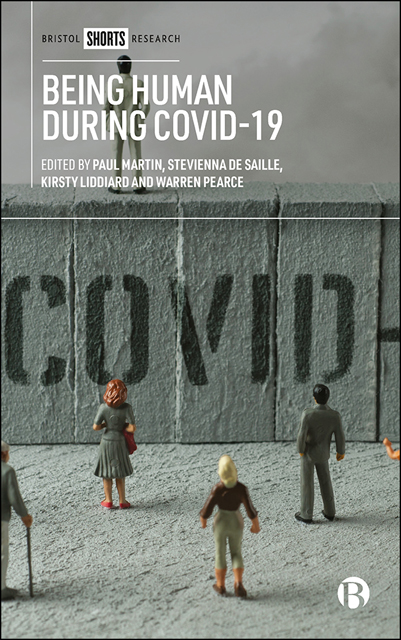one - Making Models into Public Objects
Published online by Cambridge University Press: 13 October 2022
Summary
When the UK government switched its COVID-19 strategy from mitigation to suppression on 17 March, it seemed a case of ‘new data, new policy’. News reports cited how modelling from Imperial College’s Centre for Global Infectious Disease projected between 410,000– 500,000 deaths, prompting the government to implement stringent lockdown policies, and upending the UK’s political economy. Unsurprisingly, given the stakes involved, public debates about government policies and their effects have been intense; for example, the time taken for the UK to introduce a lockdown policy and the unequal effects on health and wellbeing. However, two broader questions regarding the relationship between science, politics and publics now demand reflection: how is science advice being formulated, and how is that advice being used to justify policy decisions in the public interest? We attempt to answer these questions by focusing on whether the models that lie at the heart of COVID-19 science can become ‘public objects’, helping to foster both public debate about policy and trust in the institutions that we rely on to make life-and-death decisions.
What’s missing from evidence-based policy?
Despite the UK government’s recent rocky relationship with experts, scientific advisers were placed at the forefront of the public response to COVID-19, both rhetorically, through phrases such as ‘following the science’, and visually, with the Prime Minister being flanked by scientific advisers at daily press conferences. The government and its experts appeared to be working harmoniously on ‘evidence-based policy’, the rational ideal of creating knowledge for decision making. However, relying on science for the public validation of policy conceals an array of judgements about what that science includes and excludes, and what this in turn says about how, and for whom, the state cares.
In the early days of the pandemic, epidemiological modelling dominated UK science advice. On the surface, the government’s response to the Imperial College report seemed like the ideal of how evidence-based policy should work. Yet, if this modelling was decisive in prompting policy change, then it should also be acknowledged that models imagine human experience as a rather homogeneous affair.
Information
- Type
- Chapter
- Information
- Being Human during COVID-19 , pp. 13 - 19Publisher: Bristol University PressPrint publication year: 2022
